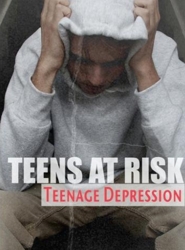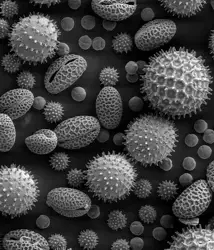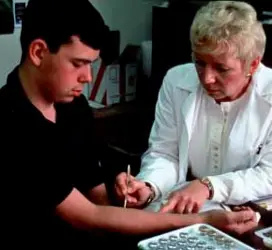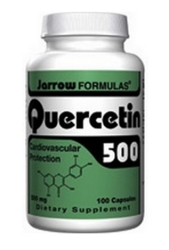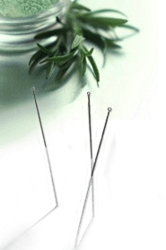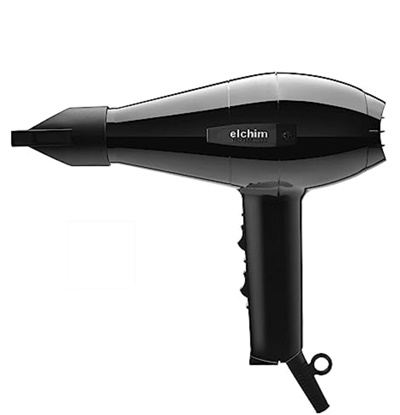
Allergies And Depression
Introduction - Allergies And DepressionAlthough a tremendous amount of research has been done to understand the root causes of depression, there are still some unknown triggers.
One possible cause of depression has been linked to allergies. Some experts believe the tie between allergies and depression is more significant than previously thought.
Common Theory Of Depression - Serotonin & Norepinephrine
The commonly accepted theory about depression is that it's caused by flagging levels of feel-good serotonin and norepinephrine in the brain. According to the most commonly accepted hypothesis, depression arises when low serotonin levels promote low levels of norepinephrine, a monoamine neurotransmitter.
Norepinephrine may be related to alertness and energy as well as anxiety, attention, and interest or lack of interest in life. Serotonin is linked to anxiety, obsessions, and compulsions. Dopamine is tied to attention, motivation, pleasure, and reward, as well as interest in life.
Allergy Attacks - Links Between Allergies And Depression
Some scientists believe histamine, a chemical released during an allergy attack, may impact the brain and nervous-system receptors. Richard Firshein, D.O. examines the link between allergies and depression in his book, {{asin=1573228087,text=The Nutraceutical Revolution}}.
Dr. Richard Firshein D.O. - Alleviating Allergies To Alleviate Depression
Firshein has proposed that histamines may cause the body to reabsorb its natural feel good chemicals before they've had the chance to do their normal job. The result? After an allergy attack there may be a period of feeling blue or depressed.
Dr. Firshein has reported success in treating some of his patients who have allergies and depression by alleviating the allergies. He notes that sometimes when the allergies are cleared up the bouts of depression are also eliminated.
It's important to note that not all people who have allergies will have depression nor will all people who suffer from depression also suffer from allergies. However studies do indicated that allergies can definitely be a risk factor for depression.
Dr. Teodor T. Postolache - Biological Link Between Allergies And Depression
A 2005 study conducted at the University of Maryland School of Medicine in Baltimore by Dr. Teodor T. Postolache found a biological link between allergies and depression. Postolache's study found that peaks of tree pollen levels correlated with increased levels of suicide in women. Suicide often has a direct link to depression.
Postolache's study also explained that allergic rhinitis is known to cause specialized cells in the nose to release cytokines, a kind of inflammatory protein. Animal and human studies alike suggest that cytokines can affect brain function, triggering sadness, malaise, poor concentration, and increased sleepiness.
First Steps - Identifying Source Of Allergies
Dr. Firshein suggests that the best action to take to determine if your allergies are leading to feelings of depression is to identify the source of your allergies.
There are a wide range of foods, drugs and other substances which can trigger allergies. Even hair and beauty related products can create allergic reactions in some users.
Allery Testing
Allergy testing may be needed to find out whether the symptoms are an actual allergy or are caused by other problems. For example, a runny nose or cough may actually be due to an infection.
Skin testing is the most common method of allergy testing.
One type of skin testing is the prick test. It involves placing a small amount of the suspected allergy-causing substances on the skin, and then slightly pricking the area so the substance moves under the skin. The skin is closely watched for signs of a reaction, which includes swelling and redness.
Additional Types Of Allergy Testing
Other types of skin tests include patch testing and intradermal testing as well as:
- Blood tests can measure the levels of allergy-related substances, especially one called immunoglobulin E (IgE).- A complete blood count (CBC) called the eosinophil white blood cell count may also help diagnose allergies.
In some cases, a physician may tell you to avoid certain items to see if you get better, or to use suspected items to see if you feel worse. This is called "use or elimination testing." This is often used to check for food or medication allergies.
A doctor may also check your reaction to physical triggers by applying heat, cold, or other stimulation to your body and watching for an allergic response. Sometimes, a suspected allergen is dissolved and dropped into the lower eyelid to check for an allergic reaction.
Eliminating Allergy Triggers
Once comprehensive allergy testing is complete the goal would be to eliminate all known triggers. Dr. Firshein also suggests working with natural antihistamines and anti-inflammatory agents to determine if they will eliminate allergic reactions. Dr. Firshein suggests trying a two week supplementation program of 300 mg of quercetin (2x daily) and two 400 mg capsules of nettles (3x daily).
Note: Always works with your own health care provider to make sure quercetin and nettles are acceptable for you to take.
While taking the natural supplements and herbs keep a daily journal to note down any changes in allergies or reactions. The supplements should be limited to only a two week period only since long term use may not provide beneficial results.
If natural antihistamines and anti-inflammatory agents don't work, talk to your physician about prescription alternatives.
Depression Without Allergies
Once allergic triggers and symptoms are cleared it may become more clear whether depression exists as a result or in conjunctions with allergies or due to other reasons.
Once it's clear there is no direct link between depression and allergies, proper treatment can be prescribed and administered.
Summary - Allergies And Depression
The exact cause of depression is not known. Many researchers believe it is caused by chemical changes in the brain. This may be due to a problem with genes, or triggered by certain stressful events.
More likely, it's a combination of both. Some experts believe allergies may also be a trigger for depression.
Some types of depression may be genetic but depression can also occur with no prior family history of the illness. Anyone of any age can develop depression.
Certain medical conditions including an under active thyroid, heart disease, serious illness or chronic pain may trigger a bout of depression.
Chronic insomnia, alcohol, drug abuse, steroid use and stressful live events such as divorce, job loss, death of someone close, childhood abuse or neglect or social isolation may also lead to periods of deep depression.
Whether allergies and insomnia or linked or not, any type of depression should be taken seriously and treated.
Note: This blog was written in loving memory of Preston "Glen" Britt.
Social Media Network Information
Please follow us on Twitter at: https://Twitter.com/HairBoutique. I look forward to meeting new people from all walks of Twitter and learning from their Tweets.



